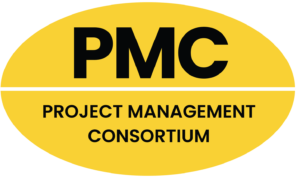Attractive landscaping can improve commercial properties like hotels, holiday resorts, apartment blocks, and housing estates and help them attract and retain tenants and other customers. But landscaping requires regular irrigation, which can be costly, especially when water is scarce. To conserve water and reduce their demand for it, water-savvy commercial property owners are adopting sustainable irrigation practices.
There are various strategies that commercial properties can implement to reduce their water footprint while still maintaining a landscape that is appealing to the beholder’s eye. Some options include using recycled water, water-wise or smart-controller-equipped irrigation systems, and water-wise landscaping with features that harvest natural water.
Recycled Water
Advances in commercial wastewater treatment allow wastewater to be treated on site and safely reused for irrigation. Because wastewater is continually being generated on commercial properties, recycled wastewater is a reliable source of water that can significantly reduce a company’s dependence on groundwater or municipal water when irrigating. Moreover, recycled water often contains essential elements like nitrates and phosphates that promote plant growth. The healthy lawns and vibrant gardens of commercial landscapes are thus achieved at a fraction of the cost of conventional irrigation methods.
In addition to its economic benefits, the use of recycled water also carries significant environmental advantages. By employing recycled water for irrigation purposes, commercial properties can help alleviate the strain on local water sources, especially during periods of drought or water scarcity. Over-extraction of groundwater can lead to the depletion of aquifers and cause land subsidence, posing serious environmental hazards. Recycling water mitigates this risk and ensures a more sustainable approach to water management.
Furthermore, the practice of using recycled water for irrigation contributes to a reduction in nutrient pollution. When conventional wastewater is discharged into water bodies, it can introduce high levels of nitrogen and phosphorus, leading to eutrophication and harmful algal blooms. However, by treating and reusing water on-site, commercial properties prevent these contaminants from reaching natural water systems, safeguarding the health of local ecosystems and aquatic life. Embracing recycled water as a viable irrigation solution not only benefits businesses economically but also fosters a responsible and environmentally conscious approach to water usage.
Water-Wise Irrigation Systems
Which irrigation system one should use largely depends on how much water is needed to irrigate a given landscape. Inline drip irrigation systems that deliver water directly where it’s needed are much more efficient than systems consisting of sprinklers that spray water over a broader area.
Beyond inline drip irrigation systems, other water-wise options exist that can further enhance the sustainability of commercial landscaping. One such approach is the utilization of subsurface irrigation, which involves delivering water directly to the root zone through buried pipes or tubes. This method reduces water loss due to evaporation and runoff, and it reduces the growth of weeds and the susceptibility of desired vegetation to disease by keeping the surface soil relatively dry.
Automated Smart Irrigation Systems
Smart irrigation systems take into account such factors as condition of the soil, evaporation rates, weather, and how much water plants use. Automated irrigation systems can be set to water at certain times of the day; for example, early in the morning or in the evening rather than in the middle of the day when evaporation rates tend to be much higher. Soil-moisture sensors provide real-time data on levels of soil moisture, enabling precise scheduling of irrigation based on plants’ actual need for water. Rain sensors alert the system to skip a cycle when high moisture levels are detected so that water is not wastefully dispensed when the sky is providing plenty already.
Water-Wise Landscaping
Landscapers can also reduce water usage or capture water naturally by replacing decorative turf with bark or paving stones that require no watering; installing bio-swales, rain gardens, and retention ponds to capture runoff, remove pollutants, and help stormwater infiltrate the soil; and harvesting water from roof tops and other surfaces that can be stored in aboveground water tanks and underground water tanks.
Sustainable irrigation practices help commercial property owners to maintain attractive and healthy landscapes while managing water responsibly.
In an era defined by climate change and water scarcity, embracing sustainable irrigation systems is not merely a choice but a necessity for commercial properties seeking to remain competitive, environmentally conscious, and economically prudent. Beyond preserving valuable water resources and complying with water restrictions, these eco-friendly practices also enable properties to qualify for green certification, thereby showcasing a commitment to sustainability that environmentally conscious customers and tenants will appreciate. By taking proactive steps towards a greener, more sustainable future, commercial property owners can forge a path towards resilient landscapes, thriving businesses, and a planet where the bounty of nature and human progress coexist in harmony.





























